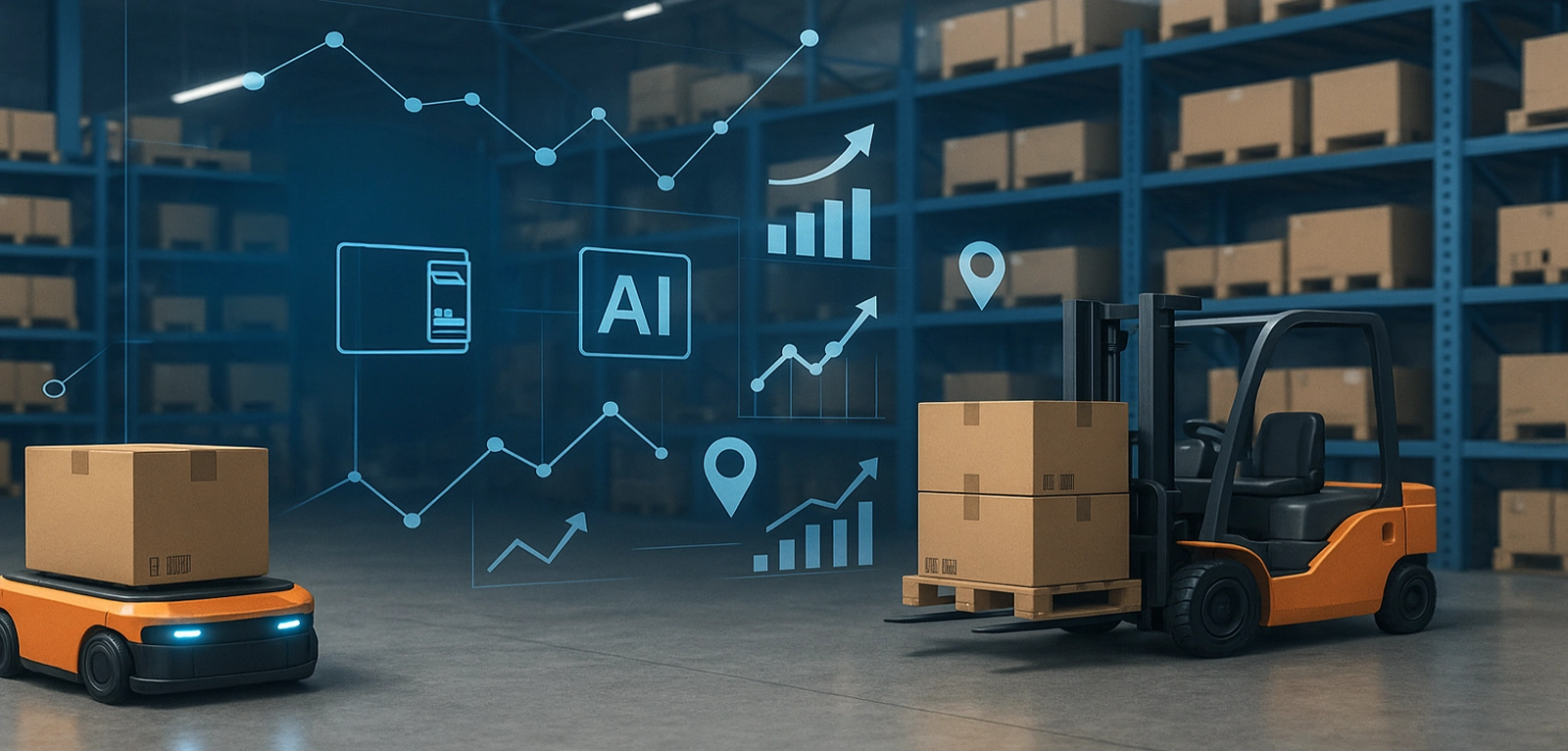Typically, supply chains are reactive. Companies tap their knowledge of past events, historical data, previous sales numbers, and seasonal patterns to plan operations.
However, that comes with some risks that could lead to missed opportunities and revenue loss.
Companies usually rely on spreadsheets and legacy software, such as enterprise resource planning (ERP) systems, to plan operations. However, these systems are proving limited in today’s fast-paced and unpredictable supply chain environment.
This approach is also labor-intensive and time-consuming, as teams must consolidate data from multiple sources before developing actionable plans. It’s also common for error rates to be high. The outcome is that decision-making becomes complicated.
These methods become even less effective when unprecedented events-such as supplier failures, seasonal fluctuations, or sudden demand peaks occur. Decision-makers often find themselves scrambling for quick fixes. They must coordinate with multiple stakeholders to pivot and adjust their plans. By the time these adjustments are made, market conditions may have changed again.
To stay competitive, companies need a more proactive approach to supply chain management. They need a system that can self-learn and optimize its future performance.
How Do Self-Learning Systems Redefine Logistics Efficiency?
Traditionally, supply chain management meant firefighting new challenges every day. Teams typically reacted and made decisions only after events occurred. This reactive approach severely disrupted the business and operations, and led to resources focusing on solving problems rather than planning for the future.
However, the landscape is quickly changing. Companies are now using AI to manage the supply chain operations. AI’s self-learning capabilities enable it to independently learn from past and current data and continuously update its models.
AI typically learns and improves from sources such as:
Previous processes: AI analyzes every process in the supply chain from warehouse operations to inventory management and shipping. It identifies bottlenecks, such as inefficient dock scheduling, detects patterns, and self-corrects to eliminate inefficiencies. All of this happens with minimal human intervention. This helps companies improve their processes and generate more revenue.
Delayed shipments: Shipments are often delayed due to poor weather, port congestion, or capacity constraints. Frequent delays could lead to companies losing customers due to a lack of trust. With AI, companies can pinpoint the root causes behind shipment delays. This could range from poor weather conditions to port congestion. AI also empowers companies to take proactive actions forecasting disruptions, adjusting schedules, and minimizing customer impact.
Inefficient routing: AI continuously learns from previous and current routes to find the most optimal one for future deliveries. It assesses traffic patterns, delivery windows, times when routes are ineffective, vehicle capacity, and more to identify potential bottlenecks. Based on this data and other conditions, AI learns to reroute shipments during delays.
AI continuously learns from countless data points, becoming smarter and more precise over time. With each iteration, it grows more capable of managing supply chains and enhancing resilience.
How Does CSCS’ SCOTI Self-Learn and Improve Logistics?
Traditional AI systems are rules-based they learn only when companies feed them new data. In a fast-moving world, companies cannot spend much time teaching the models. That’s where the self-learning capabilities of agentic AI solutions like SCOTI come into play.
CSCS’s agentic AI, SCOTI, continuously self-learns from past mistakes and events, applying those insights across both routine and new processes.
Through continuous learning and adaptation, SCOTI helps companies:
Automate workflows: SCOTI integrates enterprise resource planning (ERP) systems, warehouse management systems (WMS), transportation management systems (TMS), and other enterprise applications to automate supply chain workflows. Being context-aware, it can monitor shipments, connect systems, and resolve disruptions instantly without extensive coding.
Manage exceptions: Whether it’s temperature fluctuations or unexpected equipment failures, SCOTI learns from these events and helps companies handle exceptions efficiently. It detects errors in real time and, based on its learning, triggers resolutions to address the exceptional situation.
Make autonomous decisions: SCOTI’s intelligent agents excel at making autonomous decisions. This means companies no longer have to worry about rerouting shipments, updating inventories, or prioritizing orders manually. SCOTI handles it all-learning, simulating, and executing tasks independently without the need for extensive training or human intervention.
Why is the Human-in-the-Loop Approach Essential in Self-Learning Systems?
Although agentic AI solutions like SCOTI can self-learn and transform supply chain operations, human oversight remains crucial.
For example, AI can conduct regular check-ins during yard management, but final approval must rest with humans to prevent future problems.
Human involvement remains vital for:
Monitor the performance of agentic AI and maintain its boundaries.
Govern AI to establish accountability, transparency, and ethics across operations.
Interpret AI insights to make strategic business decisions that AI can’t make.
Oversee AI training and provide feedback to refine performance.
Validate and override certain AI recommendations to align them with business needs.
Conclusion
The logistics industry is enormous, projected to reach nearly $5.95 trillion by 2030. However, it is also one of those unpredictable industries where firefighting is a daily routine. Companies can no longer rely on the same reactive approach to solve supply chain challenges. They need solutions that can self-learn from past and present data, making autonomous decisions to enhance logistics efficiency. That’s where AI truly comes into play. AI uses historical and current data from processes, shipments, and routes to plan logistics and meet market demand.
CSCS’s agentic AI, SCOTI, is one such solution-continuously learning from past data to help companies boost logistics efficiency.
For more information on SCOTI, contact us.
Frequently Asked Questions (FAQ)
Q. Why are traditional supply chain methods ineffective?
Traditional supply chain management methods were reactive. Companies would respond only after a crisis, leading to shipment delays, lost opportunities, and revenue loss.
Q. Why are companies embracing AI in logistics?
AI learns from historical and current data and continuously improves logistics processes. This enables decision-makers to focus on more critical aspects of the business than on firefighting new problems.
Q. What are self-learning systems, and how do they improve logistics?
Self-learning systems are AI-driven solutions that analyze process gaps, learn from past events and mistakes, and make autonomous decisions to improve logistics. They help companies automate workflows, manage exceptions, and make quick decisions aligned with business goals.


